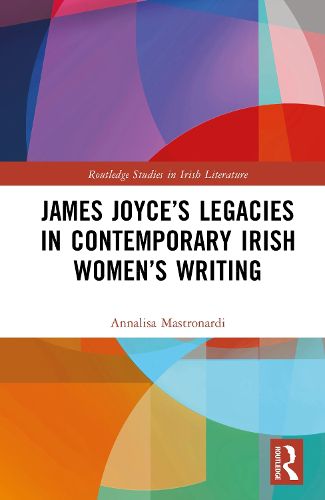Readings Newsletter
Become a Readings Member to make your shopping experience even easier.
Sign in or sign up for free!
You’re not far away from qualifying for FREE standard shipping within Australia
You’ve qualified for FREE standard shipping within Australia
The cart is loading…






James Joyce's Legacies in Contemporary Irish Women's Writing is a ground-breaking study that, for the first time, explores in depth the influence of James Joyce on Irish women writers, from his contemporaries to more recent voices. With a particular focus on Anne Enright's The Gathering, Eimear McBride's A Girl Is a Half-formed Thing and Emilie Pine's Ruth & Pen, this book examines how Irish women writers have engaged with Joyce's legacy.
Unlike their male counterparts, who have often felt overshadowed by Joyce's influence, Irish women writers have embraced and expanded upon his work, viewing it not as a constraint but as an opening to new creative possibilities. This book will be of particular value to Joyce scholars working in feminist and reception studies, as well as to students of Irish literature and women's writing. It offers fresh insights into the evolving landscape of Irish literature and complicates Harold Bloom's theory of the anxiety of influence, demonstrating how women writers perceive canonical figures like Joyce not as rivals, but as trailblazers.
$9.00 standard shipping within Australia
FREE standard shipping within Australia for orders over $100.00
Express & International shipping calculated at checkout
Stock availability can be subject to change without notice. We recommend calling the shop or contacting our online team to check availability of low stock items. Please see our Shopping Online page for more details.
James Joyce's Legacies in Contemporary Irish Women's Writing is a ground-breaking study that, for the first time, explores in depth the influence of James Joyce on Irish women writers, from his contemporaries to more recent voices. With a particular focus on Anne Enright's The Gathering, Eimear McBride's A Girl Is a Half-formed Thing and Emilie Pine's Ruth & Pen, this book examines how Irish women writers have engaged with Joyce's legacy.
Unlike their male counterparts, who have often felt overshadowed by Joyce's influence, Irish women writers have embraced and expanded upon his work, viewing it not as a constraint but as an opening to new creative possibilities. This book will be of particular value to Joyce scholars working in feminist and reception studies, as well as to students of Irish literature and women's writing. It offers fresh insights into the evolving landscape of Irish literature and complicates Harold Bloom's theory of the anxiety of influence, demonstrating how women writers perceive canonical figures like Joyce not as rivals, but as trailblazers.